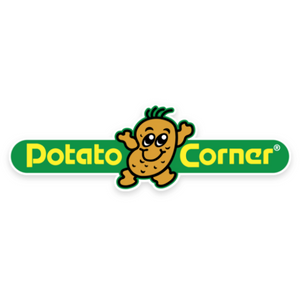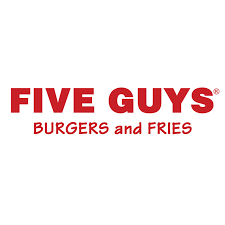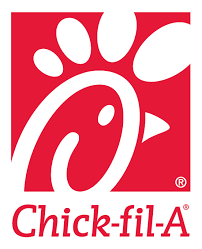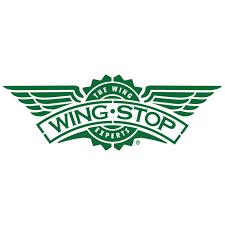Potato Corner Franchise in 2025: Costs, Fee & FDD
Unlock the potential of a Potato Corner franchise with our in-depth analysis. Discover the pros, cons, and key investment insights that can help you decide if this popular snack brand is the right opportunity for you.

Table of Contents:
Potato Corner, a globally recognized brand, started as a small food cart business in the Philippines in 1992. It was founded by Joe Magsaysay and his partners, who envisioned bringing a unique twist to the traditional french fry by offering various flavored powder toppings. The innovative concept quickly gained traction, and the brand expanded rapidly. Potato Corner became the go-to snack destination for people craving a fun and flavorful experience, carving out a significant niche in the fast food industry.
Potato Corner’s core product is its signature flavored french fries, available in a variety of sizes and flavors, such as cheese, barbecue, sour cream, and more. The brand also offers ancillary products like chicken poppers and tater tots, catering to a diverse customer base that includes children, teenagers, and adults. The brand’s fun and flavorful concept resonates well with its target market, making it a popular choice for snack lovers across the globe.
Today, Potato Corner boasts over 1,000 locations in countries like the United States, Philippines, Indonesia, Australia, and more. The franchise has a robust presence in both mall kiosks and standalone stores, serving millions of customers daily. The brand’s extensive global reach highlights its adaptability and widespread appeal, making it an attractive option for potential franchisees.
Potato Corner provides a comprehensive support system for its franchisees, including initial training, ongoing operational support, and marketing assistance. The franchise also offers a flexible business model with options for different store formats, allowing franchisees to choose a setup that best suits their market and investment capacity. This strong support system ensures that franchisees are well-equipped to succeed in their business endeavors.
Potato Corner Franchise Insights
- The brand’s unique concept of flavored french fries has made it a popular choice, with millions of servings sold daily, demonstrating the high consumer engagement and repeat business.
- Potato Corner’s flexible store formats, from mall kiosks to standalone outlets, offer potential franchisees various entry points depending on their investment capacity and market conditions.
- The initial investment for a Potato Corner franchise ranges from $186,000 to $596,000, making it a relatively affordable option for entrepreneurs entering the fast-casual food market.
- Established in 1992, Potato Corner has built a solid reputation and a loyal customer base, which has helped franchisees achieve strong sales performance over the years.
Potato Corner Franchise Key indicators
Growth YOY (%)
0%
vs industry 1%
Total U.S. Franchised Units
27
3-Year Failure Rate
15%
vs industry 11%
Total Investment
$186K-$596K
How much does it cost to open a Potato Corner franchise?
Understanding the potential investment size and capital requirements is crucial when considering opening a Potato Corner franchise. These financial commitments, including initial franchise fees, equipment costs, and ongoing operational expenses, impact the feasibility and profitability of the venture. Thoroughly evaluating these factors ensures that potential franchisees are prepared for the financial responsibilities and can make informed decisions about their ability to sustain and grow the business, ultimately contributing to long-term success.
Min & Max Investment
Opening a Potato Corner franchise involves several key costs, which are outlined in Item 7 of the Franchise Disclosure Document (FDD). You can see a breakdown of the costs to open a Potato Corner below from the most recent Item 7 below:
| Type of Expenditure | Minimum Investment | Maximum Investment |
|---|---|---|
| Utility Deposits, Fees & Licenses | $4,000 | $20,000 |
| Pre-Construction Cost (Architect, Plans, Permits) | $4,500 | $20,000 |
| Leasehold/Construction | $35,000 | $180,000 |
| Exterior Signage | $4,000 | $20,000 |
| POS System and Software | $6,000 | $12,000 |
| Equipment, Smallwares, Interior Signage, Graphics & Art | $30,000 | $70,000 |
| Software License Fee | $1,000 | $3,000 |
| Opening Inventory-Trade Secret Food Ingredients | $8,000 | $15,000 |
| Opening Inventory-Potato Corner Proprietary Products | $3,000 | $10,000 |
| Office Equipment & Supplies | $500 | $2,500 |
| Grand Opening Marketing | $1,000 | $5,000 |
| Franchised Location (Security Deposit/3 months’ Rent) | $24,000 | $120,000 |
| Insurance – Liability & Workers Compensation (initial deposit) | $1,000 | $6,000 |
| Legal Fees/Organizational Expenses | $2,500 | $7,500 |
| Training Expenses (Including Travel and Living Expenses) | $2,000 | $10,000 |
| On-Site Opening Assistance Fee | $0 | $5,000 |
| Initial Franchise Fee | $30,000 | $30,000 |
| Additional Funds (3 months) | $30,000 | $60,000 |
| Total Estimated Initial Investment | $186,500 | $596,000 |
Item 7 in the Franchise Disclosure Document (FDD) is the “Estimated Initial Investment” section. It outlines the total costs a franchisee can expect to incur when starting a franchise, including the initial franchise fee, equipment, inventory, real estate, and other startup expenses. This section is crucial because it provides potential franchisees with a detailed understanding of the financial commitment required, helping them assess affordability and plan their investment strategy effectively.
Required Capital
To open a Potato Corner franchise, you’ll need to consider several key financial requirements, though specifics may vary based on location and other factors. Here’s an overview of what to expect:
- Initial Investment The total estimated initial investment for a Potato Corner franchise ranges from $186,000 to $596,000. This includes costs such as the franchise fee, equipment, initial inventory, and other startup expenses. The cost range varies depending on the size and location of the outlet. Assuming that you will finance your franchise investment, you should plan to have 20% of the total investment amount in the form of equity (cash) for the investment.
- Liquid Assets Requirement It’s generally recommended that franchisees have a minimum of $100,000 in liquid assets. This ensures you have sufficient funds to cover operating expenses and any unforeseen costs during the startup phase.
- Net Worth Requirement While specific net worth requirements can vary, potential franchisees should ideally have a net worth of at least $250,000. This includes the value of assets such as real estate, investments, and personal property, minus liabilities.
How much does a Potato Corner franchise owner make?
Calculating the salary of a Potato Corner franchise owner involves analyzing gross sales to determine total revenue, assessing operational efficiency to understand profit margins, and accounting for franchisor fees and additional expenses such as rent, utilities, and payroll. Effective management of these factors can significantly impact the profitability and financial success of a Potato Corner franchise owner. This comprehensive financial analysis helps estimate net profits, from which the owner’s salary can be derived. A clear understanding of these factors ensures accurate salary projections and financial planning for sustainable business operations.
Potato Corner Revenue & Gross Sales
While the Potato Corner franchise does not publicly disclose gross sales, the brand’s global expansion and widespread popularity suggest strong potential for significant revenue generation. Factors like location, customer foot traffic, and operational efficiency are key in determining the financial success of each franchise.
With that being said, we estimate that the average Potato Corner franchisee does similar gross sales to Aunt Annie’s or Cinnabon, which are both mall-oriented staples. Therefore we estimate gross sales for the average Potato Corner franchisee to be approximately $650,000.
Which key factors impact the average revenue performance of Potato Corner franchisees?
Several factors likely contribute to the performance of Potato Corner franchisees. The brand’s innovative product offering, featuring customizable flavored fries, drives high customer engagement and repeat business. Additionally, strategic locations in high-traffic areas such as malls and urban centers enhance visibility and foot traffic, leading to higher sales volumes. Ongoing marketing support and promotional activities further boost brand awareness and customer loyalty, positively impacting franchisee revenue.
Potato Corner Franchise Operational Costs
Operating a Potato Corner franchise involves several ongoing costs that are essential for maintaining the day-to-day operations of the business. Here are some key operational costs to consider:
- Food and Beverage Costs These include the expenses for purchasing potatoes, flavor powders, and other ingredients needed to prepare the menu items.
- Labor Costs Wages, salaries, and benefits for employees, including hourly workers and store managers.
- Rent or Lease Payments The cost of leasing space, particularly in high-traffic areas such as malls or urban centers, where Potato Corner outlets are typically located.
- Utilities Expenses for electricity, water, gas, internet, and other essential services.
- Maintenance and Repairs Costs associated with maintaining the equipment and facilities to ensure smooth operations.
- Marketing and Advertising Fees:Contributions to both national and local advertising campaigns to maintain brand visibility and attract customers.
- Insurance Costs for various insurance policies, including property and liability insurance.
Managing these operational costs effectively is key to the success of a Potato Corner franchise. By keeping a close eye on expenses and ensuring efficient use of resources, franchisees can maintain profitability while delivering the high-quality products and customer experience that Potato Corner is known for. With careful planning and attention to detail, operating a Potato Corner franchise can be a rewarding venture in the fast-casual dining industry.
Potato Corner Franchise Fees
Owning a Potato Corner franchise involves several ongoing fees that franchisees must pay. These fees are critical to maintaining the franchise’s brand consistency and operational support.
- Royalty Fee Franchisees are required to pay a royalty fee of 6% of their gross sales each month. This fee covers the continued use of the Potato Corner brand and the operational support provided by the franchisor.
- Marketing Fund Fees A contribution of up to 2% of gross sales is required for the national marketing fund. This helps finance marketing campaigns and promotional activities to maintain brand awareness.
- Local Store Marketing Expenditures Franchisees are expected to allocate 1% of gross sales for local marketing efforts, helping to drive traffic to their specific location.
- Additional Fees There may be additional fees for training, technology, and other services provided by the franchisor, depending on the specific needs of the franchisee.
These fees are essential to maintaining the Potato Corner franchise’s strong brand presence and operational support, ensuring franchisees are well-equipped to succeed.
Potato Corner Franchise Earnings
Earnings for Potato Corner franchise owners can vary widely based on factors such as location, customer traffic, and operational efficiency. While specific figures are not publicly available, the brand’s global success and widespread appeal suggest that franchisees have the potential to achieve solid financial returns.
As mentioned above, we estimate average gross sales for Potato Corner franchisees to be $650,000. This would indicate estimated earnings to be roughly $80,000 at a 12% EBITDA or operating profit margin.
Franchisees who successfully manage their operations, particularly those in high-traffic locations, can expect to generate significant revenue. Operational efficiency, coupled with strong customer engagement, plays a crucial role in maximizing profitability. Additionally, the support provided by the Potato Corner franchise system, including marketing and operational guidance, further enhances the potential for financial success.
How to Open a Potato Corner Franchise
Becoming a Potato Corner franchisee involves a step-by-step process designed to ensure that each franchise partner is a good fit for the brand and set up for success. Here’s a breakdown of the key steps:
- Initial Inquiry You or your franchise specialist submits an initial inquiry basic information about your interest and background. You should also conduct thorough research on the franchise, including seeing all of the information available on the Vetted Biz franchise intelligence platform, including access to the most recent Franchise Disclosure Document (FDD).
- Franchise Application If your initial inquiry is favorable, you’ll be asked to complete a comprehensive application. This application requires detailed information about your financial background, business experience, and reasons for choosing Potato Corner.
- Franchise Disclosure Document (FDD) Review Once your application is accepted, you will receive the Franchise Disclosure Document. This document provides in-depth information about the franchise, including fees, obligations, and the franchisor’s responsibilities. It’s crucial to review this carefully and consult with a financial advisor or attorney if needed.
- Initial Interview After reviewing the FDD, you’ll participate in an initial interview with a Potato Corner representative. This interview helps both parties assess mutual fit and align expectations.
- Background and Financial Check A thorough background check and financial assessment will be conducted to ensure you meet the franchise’s requirements, including having the necessary capital for the investment.
- Franchise Approval If everything checks out, you’ll be approved as a franchisee. This approval is your green light to move forward with selecting a location and starting the build-out process.
- Training Program Before your Potato Corner store opens, you’ll undergo an extensive training program. This program covers everything from daily operations, product preparation, and customer service to business management and marketing strategies.
- Site Selection and Build-Out With the support of Potato Corner’s real estate team, you’ll select a prime location for your store. The corporate team will assist in managing the build-out process, ensuring that your store meets brand standards.
- Pre-Opening Preparations As your store nears completion, you’ll focus on hiring and training staff, setting up supply chains, and finalizing marketing plans. Potato Corner will provide guidance and support during this phase.
- Grand Opening Once everything is ready, you’ll host a grand opening event. Potato Corner’s marketing team will help ensure your launch is a success, driving customer traffic and building excitement.
- Ongoing Support Even after your store is open, Potato Corner will provide continuous support, including marketing assistance, operational guidance, and regular evaluations to help you maintain and grow your business.
Pros & Cons
Pros
Brand Recognition: Potato Corner is a well-known brand with a loyal following, especially in the snack food market, which can drive customer traffic to your location.
Affordable Initial Investment: Compared to many other food franchises, the initial investment for Potato Corner is relatively low, making it accessible for first-time franchisees.
Flexible Location Options: Potato Corner stores can be set up in various locations, including malls, airports, and standalone kiosks, offering flexibility in finding the best spot for your market.
Proven Business Model: With decades of experience and success, Potato Corner offers a business model that has been tested and refined over time.
Cons
Limited Menu: While Potato Corner’s focus on flavored fries is popular, the limited menu may restrict customer appeal compared to other fast-food franchises that offer a wider variety of items.
Market Saturation: In areas where Potato Corner has already established multiple locations, new franchisees may face stiff competition and limited market opportunities.
Operational Challenges: Running a Potato Corner franchise requires a hands-on approach, especially during peak hours and busy seasons, which can be demanding for franchisees.
Economic Sensitivity: As a food franchise, Potato Corner is subject to economic factors like fluctuations in ingredient prices, changes in consumer spending, and labor costs, which can impact profitability.





